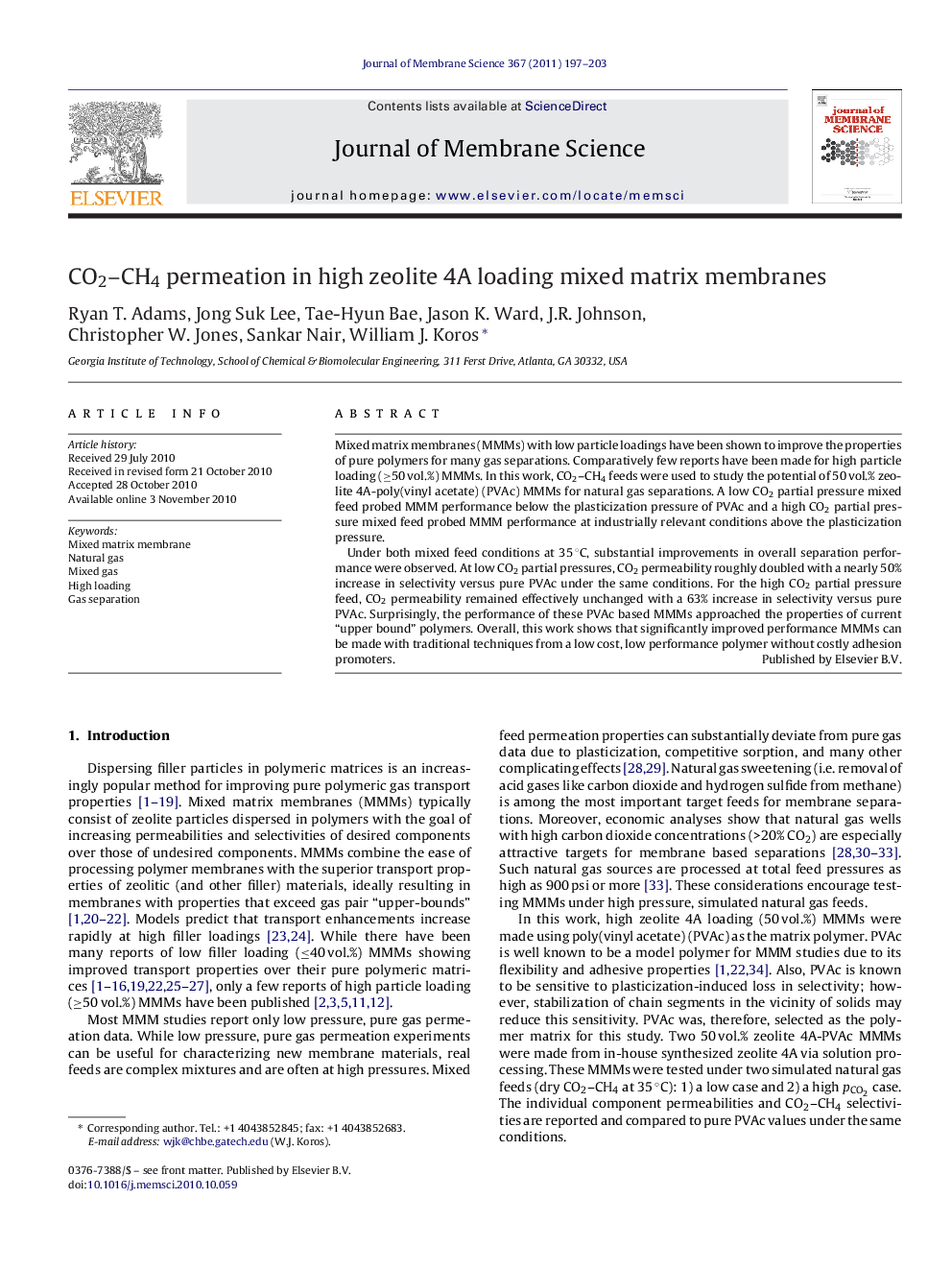| Article ID | Journal | Published Year | Pages | File Type |
|---|---|---|---|---|
| 636030 | Journal of Membrane Science | 2011 | 7 Pages |
Mixed matrix membranes (MMMs) with low particle loadings have been shown to improve the properties of pure polymers for many gas separations. Comparatively few reports have been made for high particle loading (≥50 vol.%) MMMs. In this work, CO2–CH4 feeds were used to study the potential of 50 vol.% zeolite 4A-poly(vinyl acetate) (PVAc) MMMs for natural gas separations. A low CO2 partial pressure mixed feed probed MMM performance below the plasticization pressure of PVAc and a high CO2 partial pressure mixed feed probed MMM performance at industrially relevant conditions above the plasticization pressure.Under both mixed feed conditions at 35 °C, substantial improvements in overall separation performance were observed. At low CO2 partial pressures, CO2 permeability roughly doubled with a nearly 50% increase in selectivity versus pure PVAc under the same conditions. For the high CO2 partial pressure feed, CO2 permeability remained effectively unchanged with a 63% increase in selectivity versus pure PVAc. Surprisingly, the performance of these PVAc based MMMs approached the properties of current “upper bound” polymers. Overall, this work shows that significantly improved performance MMMs can be made with traditional techniques from a low cost, low performance polymer without costly adhesion promoters.
Research highlights▶ Developed procedure for formation of defect-free high loading MMMs. ▶ Substantial enhancement of mixed gas feed permeation properties with very high loading mixed matrix membranes. ▶ Proof-of-concept established: low cost, low performance membrane materials approached “upper-bound” polymer performance in aggressive mixed feeds. ▶ High performance of MMM maintained well above the plasticization pressure of the polymer.
